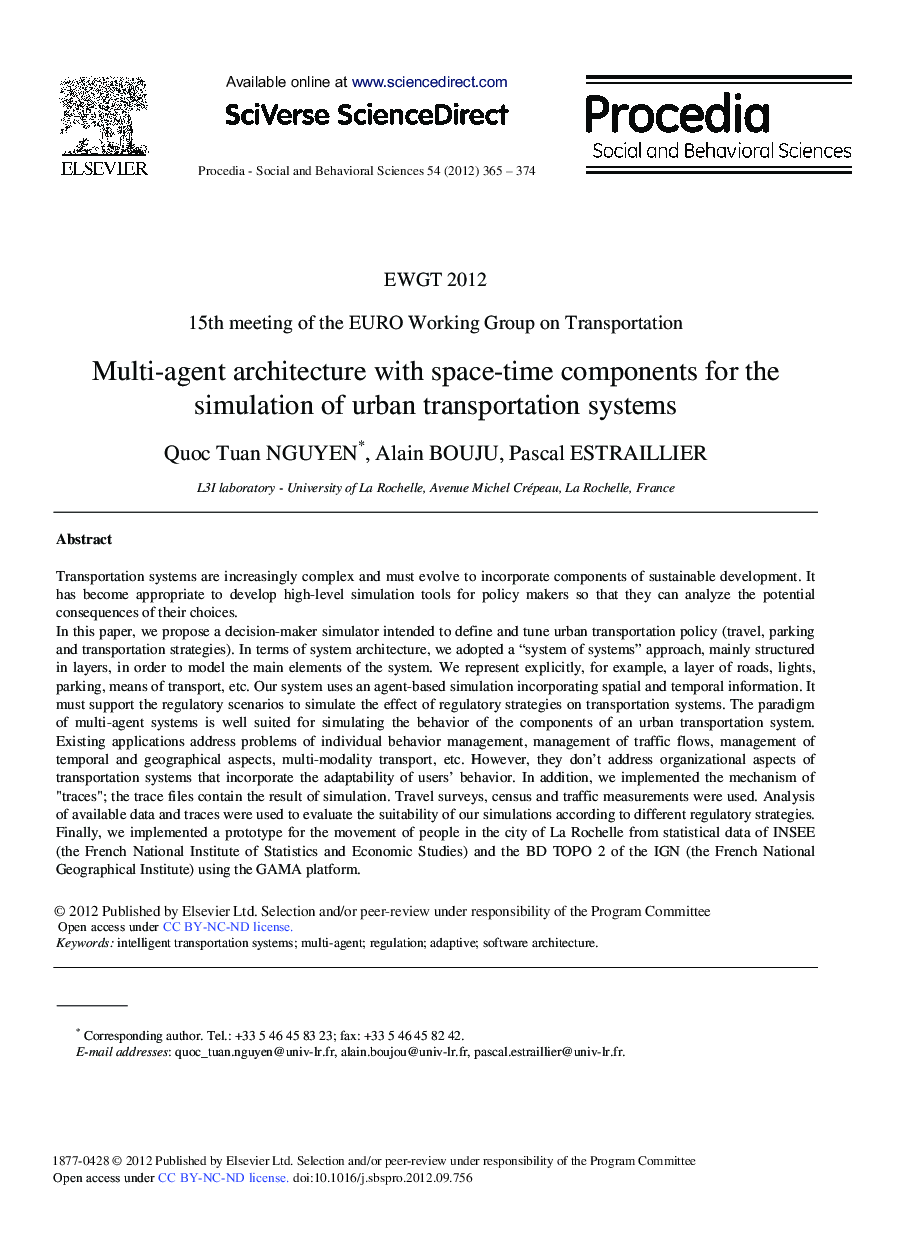| Article ID | Journal | Published Year | Pages | File Type |
|---|---|---|---|---|
| 1121375 | Procedia - Social and Behavioral Sciences | 2012 | 10 Pages |
Transportation systems are increasingly complex and must evolve to incorporate components of sustainable development. It has become appropriate to develop high-level simulation tools for policy makers so that they can analyze the potential consequences of their choices. In this paper, we propose a decision-maker simulator intended to define and tune urban transportation policy (travel, parking and transportation strategies). In terms of system architecture, we adopted a “system of systems” approach, mainly structured in layers, in order to model the main elements of the system. We represent explicitly, for example, a layer of roads, lights, parking, means of transport, etc. Our system uses an agent-based simulation incorporating spatial and temporal information. It must support the regulatory scenarios to simulate the effect of regulatory strategies on transportation systems. The paradigm of multi-agent systems is well suited for simulating the behavior of the components of an urban transportation system. Existing applications address problems of individual behavior management, management of traffic flows, management of temporal and geographical aspects, multi-modality transport, etc. However, they don’t address organizational aspects of transportation systems that incorporate the adaptability of users’ behavior. In addition, we implemented the mechanism of “traces”; the trace files contain the result of simulation. Travel surveys, census and traffic measurements were used. Analysis of available data and traces were used to evaluate the suitability of our simulations according to different regulatory strategies. Finally, we implemented a prototype for the movement of people in the city of La Rochelle from statistical data of INSEE (the French National Institute of Statistics and Economic Studies) and the BD TOPO 2 of the IGN (the French National Geographical Institute) using the GAMA platform.
